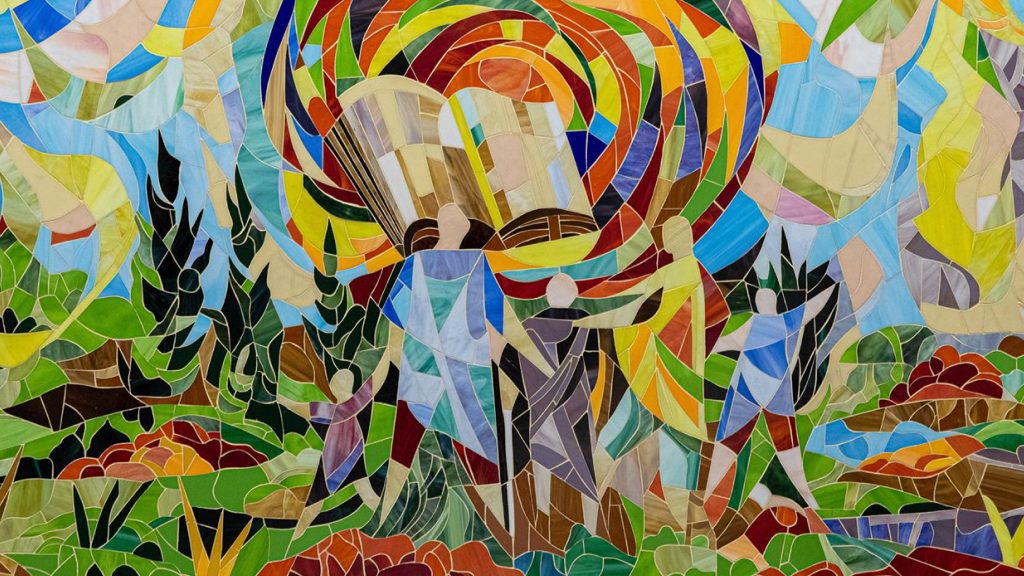A group of Nazis surrounded an elderly Jew in Berlin and demanded of him, ‘Tell us, Jew, who caused the war?’
The little Jew was no fool. ‘The Jews,’ he said, then added, ‘and the bicycle riders.’
The Nazis were puzzled. ‘Why the bicycle riders?’
‘Why the Jews?’ answered the little old man.
Throughout the course of history, the Jewish people have often found themselves blamed for the ills or misfortunes of the communities and states in which we’ve lived. If people were dying from plague and disease, then it must be the Jews. If the financial system collapsed, then it must be the Jews.
The term “scapegoat” – pinning the blame for your suffering onto someone else – actually comes from this week’s Torah portion.
In Parashat Acharei Mot, the Torah describes the ritual the priests would follow to purify the community of their sins: “Aaron shall lay both his hands upon the head of the live goat and confess over it all the iniquities and transgressions of the Israelites, whatever their sins, putting them on the head of the goat; and it shall be sent off to the wilderness … Thus the goat shall carry all their iniquities … and the goat shall be set free in the wilderness.” (Leviticus 16:21-22)
The famous French father of sociology Emile Durkheim taught that people’s norms, beliefs, and values make up a collective consciousness – a shared group identity, a common way of understanding and behaving in the world.
The collective consciousness binds individuals together and creates social integration.
But, Durkheim taught, when societies suffer misfortune or trauma, people get angry and upset. They become anxious and afraid. The threads of social fabric and integration begin to fray.
So societies try to heal themselves be regenerating that social cohesion, and respond with certain rites and rituals that center around blame, sacrifice, and scapegoating.
The Treaty of Versailles blamed Germany for starting World War I, and imposed draconian economic penalties for reparations. Germany was forced to suffer painful and humiliating economic catastrophe. Rather than accept responsibility for their defeat and the ensuing misery that resulted from their aggression, the Germans instead followed the model Durkheim predicted.
Latching onto the Russian forgery The Protocols of the Elders of Zion, the Germans pinned blame for their suffering on the Jews, whom they imagined orchestrated their downfall and defeat. Scapegoating the Jews proved to be a galvanizing force to restore German pride. Popular posters claimed: “The Jews are our Misfortune!” Marginalization led to persecution, then ultimately to Holocaust and the mechanized murder of more than six million Jews.
Scapegoating is fueled by arrogance and ignorance, an easy off-ramp so we don’t have to be self-reflective or take personal responsibility. Its alluring power lies in pulling people together around a common enemy – real or imagined.
It’s much easier to blame someone else for your unhappiness or lack of fulfillment than it is to look inward and wonder about your own culpability. Things aren’t going well? Well, it’s because of THOSE people. You know, those OTHER people. It’s the immigrants. It’s the communists. It’s the capitalists. It’s the Jews.
But ironically, the original scapegoat was not about evading responsibility – it was about taking responsibility.
Aaron as High Priest would bring the goat forward and confess all of the people’s sins – out loud. How did he know what to confess? The Torah teaches that he already had offered a sacrifice to atone for his personal failings. So in order for him to confess the people’s transgressions, they would have had to confess them to him. They would have had to take ownership of their faults and failings, confess them, and then seek to atone.
Jim Collins taught that true leaders look in the mirror, not out the window,
to apportion responsibility for poor results, never blaming other people,
external factors, or bad luck.
Societies built on blame and hatred inevitably bring ruin on their people, for they build their energy around only what they seek to destroy.
Scapegoats may be convenient outlets for our resentment and our rage, but inevitably they carry off more than our misery – they carry away our decency and our humanity.

Rabbi Dan Levin
Temple Beth El of Boca Raton
“Pray for the peace of Jerusalem…”









